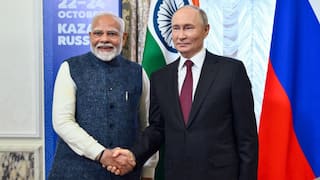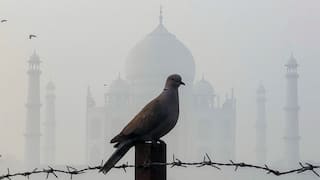ONGC Faces Difficulty In Finding Vessel To Ship 70,000 Barrels Of Russian Crude: Report
Russia-Ukraine War: ONGC has a 20 per cent stake in the Sakhalin 1 project that produces a Russian grade known as Sokol, which the Indian company exports through tenders

New Delhi: Western sanctions imposed on Moscow is making things difficult for Oil and Natural Gas Corp (ONGC), as the Indian oil and gas firm is struggling to find a vessel to ship 70,000 barrels of crude oil from Russia’s Far East, quoting sources, Reuters has reported.
ONGC along with several Indian companies have stakes in Russian oil and gas assets. While many countries have shunned Russian exports due to the Ukraine-Russia conflict, on the other hand, India has been buying more Russian crude.
According to the report, ONGC has a 20 per cent stake in the Sakhalin 1 project that produces a Russian grade known as Sokol, which the Indian company exports through tenders.
Buyers from the north Asian region mostly buy Sokol and it is loaded from South Korean ports.
However, shipping that grade is becoming harder because of concerns from shippers over reputational risk and increasing difficulty for Russian assets to find insurance coverage.
Usually, Sokol oil are first shipped from the De-Kastri terminal in Russia's Far East using ice class vessels to South Korea. From there, they are reloaded onto conventional tankers. In the global merchant fleet, the number of ice class vessels are also limited that can be deployed at any time.
Refiners from India rarely buy the Sokol grade due to its difficult logistics which make the oil costly.
For transporting Sokol grade oil, ONGC mostly relies on ice-class vessels provided by Russia’s state-owned Sovcomflot (SCF). These vessels ferry the crude to Yoesu port in South Korea, and from there the Indian firm exports to buyers, mostly in the north Asia countries.
Shipping sources have said that harsh sanctions on Russia by the US and other Western European countries are making it difficult for Russian vessels to maintain insurance and reinsurance cover for voyages. Sanctions were also imposed on SCF’s fleet by the West.
Fearing potential reputational risks, shipping companies are also less willing to move Russian oil in Asia, sources added.
ONGC did not receive any bids in its tender for export of Sokol last month as buyers backed out due to sanctions.
Later ONGC sold one cargo each to Hindustan Petroleum Corp and Bharat Petroleum Corp.
According to shipping sources, BPCL’s cargo was scheduled for lifting early next month from Yeosu port in South Korea, while HPCL was awarded the cargo for lifting in end-May.
India this year has bought more than twice as much Russian crude in the two months since Ukraine-Russia war as it did in all of 2021.
The maritime industry of Russia is grappling with the winding down of services, including ship certification by leading foreign providers such as Britain's LR and Norway's DNV.
Marine fuel sellers have also stopped serving vessels flying the Russian flag at major European hubs, including Spain and Malta in another blow to Moscow's exports, sources said.






































